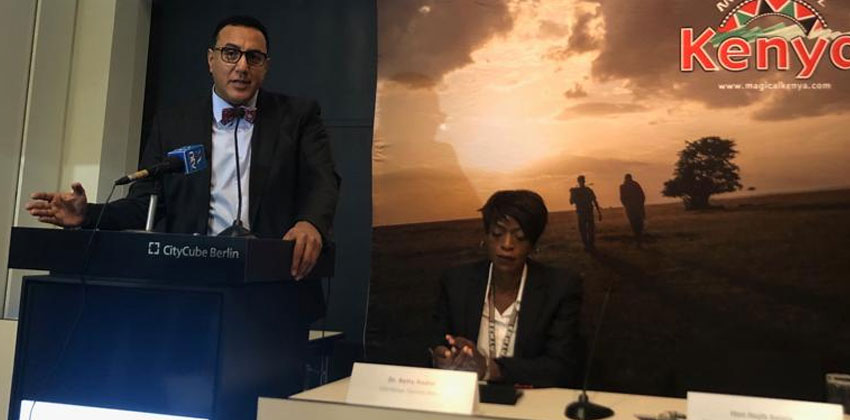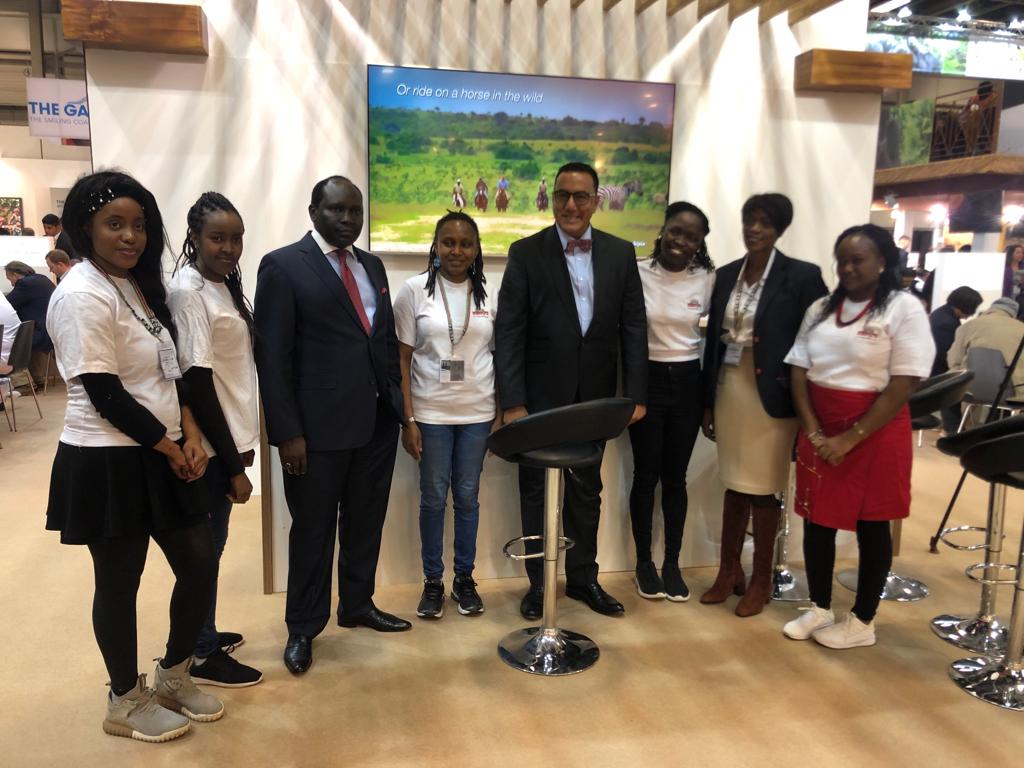Kenya reiterates sustainable tourism is the key priority

Cabinet Secretary for Tourism Najib Balala addressing the gathering
Kenya expects to attract visitors to the country by showcasing its pristine beaches and wildlife products in the ITB Berlin 2019, which kick started a couple of days ago.
Over 40 Kenyan travel trade led by Najib Balala, the cabinet secretary for Tourism, are attending a three-day long International Tourism Bourse (ITB) in Germany to pitch for tourism business in the midst of over 180, 000 exhibitors, who are meeting to discover and negotiate the latest travel industry trends and opinions.

Artists from Kenya performs the Maasai Jumping Dance ‘adumu’
The German market remains among one of Kenya’s key tourist source markets, having recorded 78,388 arrivals last year, a growth of 59.2 per cent from 2017 that posted 49,247 arrivals.
“Sustainable tourism is our key priority, it is a necessity in today’s tourism business and Kenya is making her strides towards this,” said Balala while speaking to an international press in Germany.
He noted that beach and wildlife attractions remain key tourist pullers into the country, besides other diversified products and, therefore, concerted efforts towards conservation are underway.
“We have a success story on plastic ban. Kenya is an example to other East African nations and the world for her moratorium on plastic in 2017. The ban has reduced the number of plastics getting into the Indian Ocean waters, thus mitigating real threat to Marine life,” said Balala

Delegates of Kenya Tourism
He added that under the National Wildlife Strategy, 2030, Sustainability and Governance is one of the key pillar of focus to ensure proper co-ordination, effective implementation and sustainability of wildlife conservation in Kenya. Kenya has asserted her zeal on sustainable tourism initiatives, on anti-poaching campaigns, as well as beach management programs to strengthen tourism business.
Balala called on Europe, through the European Union, to seriously consider total ban of the ivory market – currently the highest market for Ivory is Europe and Japan – and to boost conservation efforts.




